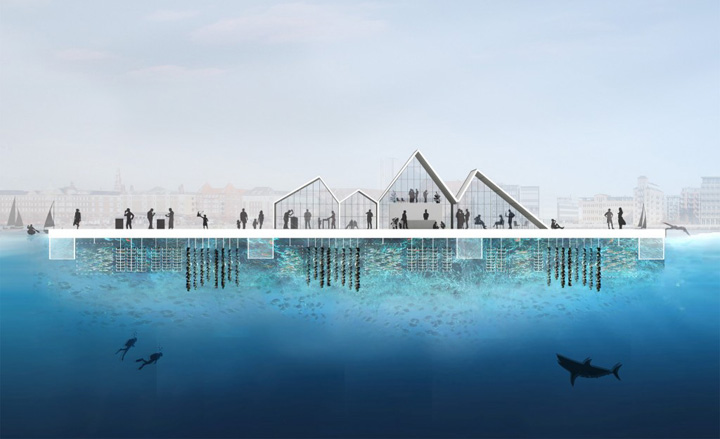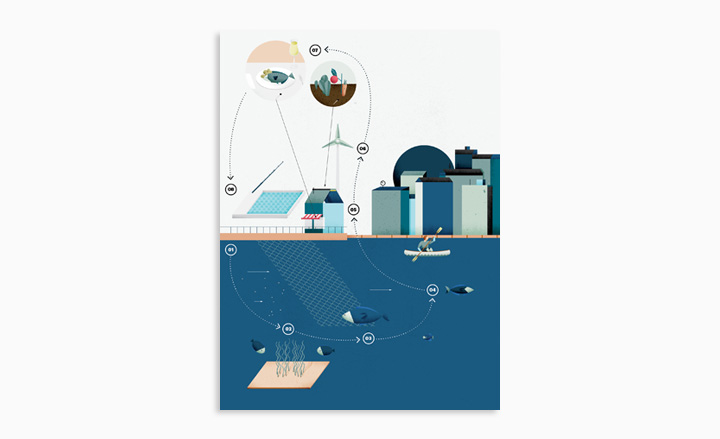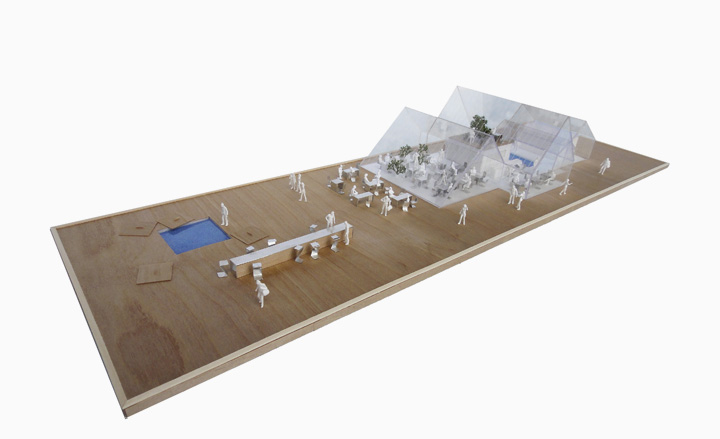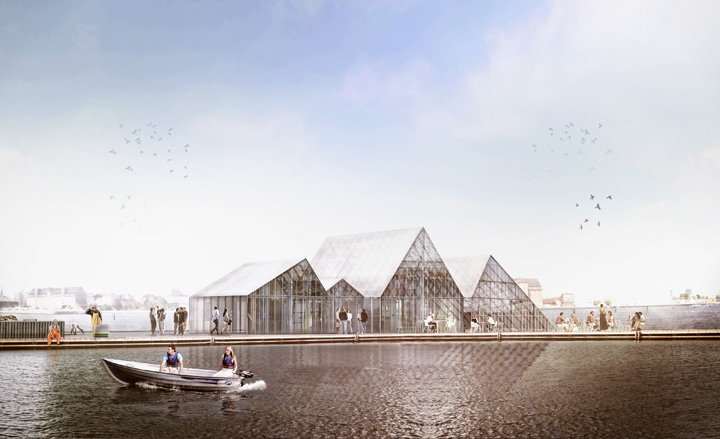Harbour Farm by Effekt Architects and Konvers, Copenhagen

Harbour Farm is a highly ambitious port regeneration project orchestrated by communications firm Konvers and Effekt Architects in Copenhagen. It aims to transform polluted waters and under-employed docksides into urban fish farms, where seafood can be bred, harvested and served on site in top class restaurants.
Alongside the farm and food functions there are also plans for recreational activities such as kayaking and swimming and allotment units for individual fish farming. The fully organic, sustainable systems put in place will include a water monitoring laboratory, turbines for generating energy, and a natural waste system that will fertilise local rooftop crops, which then complete the cycle by turning up alongside the homegrown fish, oyster, clams and mussels on the restaurant plates.
Mikkel Bøgh of Effekt Architects says, 'Originally we just wanted to combine local oyster farming with a glass of Champagne, but we realise that the potential stretches way beyond oysters and Champagne'. With the Municipality of Copenhagen on side to start the development of the first model in local waters, excitement at the international scope of the programme is building.

Key to illustration depicting regeneration process: 1. Floating platform holds suspended oyster beds and nets to contain fish in designated area; 2. Artificial base keeps pollutants out; 3. Mullets eat algae and droppings feed seaweed production; 4. Seaweed and mussel lines provide shelter for crustaceans; 5. Restaurant serves the seafood harvest; 6. Windmill, submerged turbines and photovoltaic panels power a water-monitoring laboratory and the restaurant; 7. Fish waste provides nutrition for rooftop farms; 8. Recreational activities, such as kayaking, are on offer. Illustration: Martin Nicolausson

An upscale restaurant will serve seafood harvested from the fish farm, alongside local rooftop grown vegetables, which have been fertilised using the fish farm waste

Besides the restaurant, other recreational activities include public fishing, kayaking and swimming
Receive our daily digest of inspiration, escapism and design stories from around the world direct to your inbox.